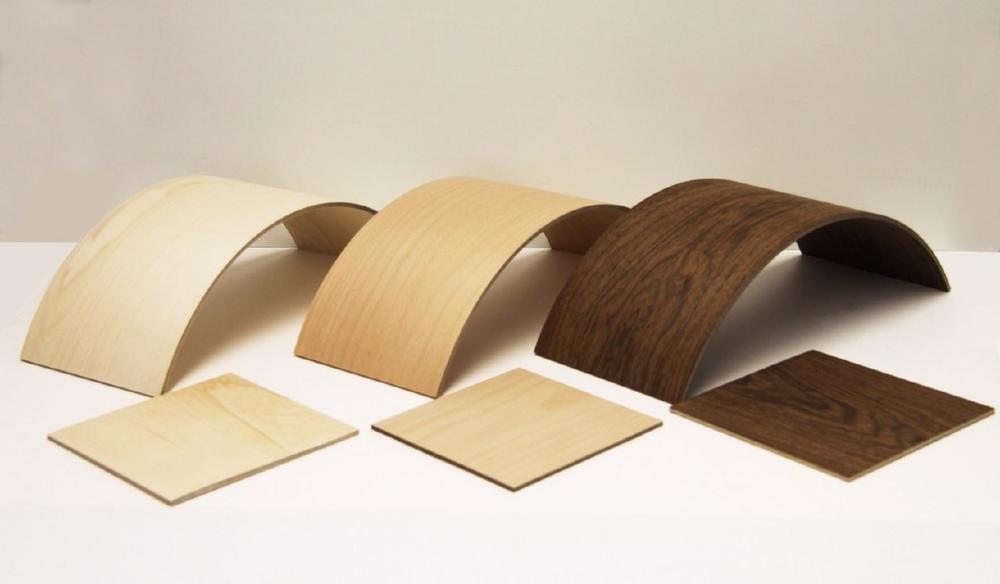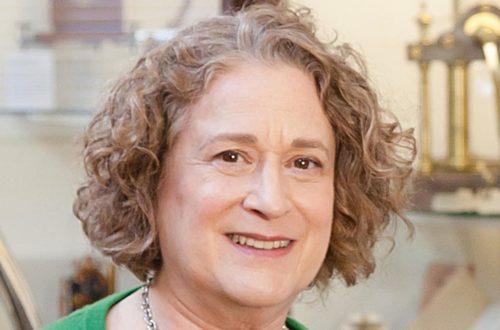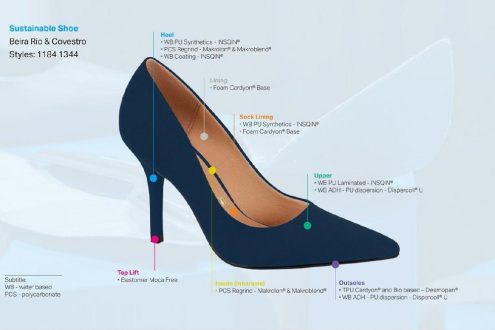
Looking for industrial partners: Eco-friendly, flexible fiberboard made of straw can be produced without synthetic resins
Dr. Hanaa Dahy, Junior Professor at the Institute for Structures and Structural Design (ITKE) at the University of Stuttgart, has developed a new, completely flexible fiberboard that is manufactured from rapidly renewable raw materials. These so-called biocomposites could be an alternative to plastics or HDF boards, as they are not produced with resins that are harmful to health.
The invention is protected by patent and was recently registered as a trademark under the name "Bioflexi". Due to the low raw material costs involved, "Bioflexi" is an attractive solution for the furniture industry and for architectural free-form applications. The boards are manufactured using established production methods. The straw and the biopolymer are compounded with an extruder and then – depending on the application – pressed and fixed in the desired shape by cover layers.
Only small sample pieces of this ecologically harmless and freely formable board have been produced so far. On behalf of the University of Stuttgart, TLB is now looking for business partners who are able to produce and launch this innovative fiberboard. Ideal manufacturing partners would include companies specializing in fiberboard production or companies that process natural materials and have the appropriate machinery. Experience in the field of compounding fibers and biopolymers and the subsequent extrusion of boards would be another asset.
Conventional fiberboards are made from wood, sawmill by-products or residual wood. A distinction is made between the various boards based on their specific manufacturing process and density. However, resins containing formaldehyde or isocyanates are often used to produce the boards. Both substances pose considerable health risks. Therefore, many of the common fiberboards can be recycled but are not compostable.
The HDF board developed by Prof. Hanaa Dahy contains 80 to 90 percent annually renewable raw materials such as straw. This natural fiber is available worldwide as a residual material and therefore costs little. Moreover, straw does not compete with food production. The fiberboards can be made of wheat, maize, rice, oat, barley, or rye straw fibers. Fiberboards made of rice straw even have an added benefit, i.e., their silicate concentration reaches up to 20 % of the dry fiber weight. Since silicate is a natural fire-retardant material, the DIN 4102-B1 material classification "hardly inflammable" is thus already fulfilled by the addition of purely mineral additives.
An environmentally compatible thermoplastic elastomer is used as a binder. As a result, the board can be produced virtually free of formaldehyde and isocyanates, which minimizes health risks throughout the fiberboard’s product life cycle. By adding different binding agents, both flexibility and stability of the boards can be varied for different applications. The boards can also be laminated with various waterproof coatings. Coloring could be achieved by a colored lamination.
The novel high-density fiberboard can be used for the production of free-form furniture and partitions as well as of floor coverings with anti-slip and impact-absorbing properties. At the end of its useful life, the fiberboard can be recycled and even composted. This leads to double waste prevention: firstly, during production through the use of residual agricultural fibers and secondly through composting at the end of the product life cycle.
Patents have been granted for the flexible HDF board in the United States (US 10,137,596 B2) and Europe (EP 2965882 B1) (validated in DE, FR, GB & NL). Patent applications were also filed in Malaysia. Technologie-Lizenz-Büro (TLB) GmbH has been commissioned by the University of Stuttgart with the commercial implementation of the invention and is looking for industrial partners for the market launch. TLB GmbH offers companies the opportunity to license the patented technology or to purchase the industrial property rights.
For more detailed information, please contact Anne Böse, Business Development Manager, TLB GmbH, at boese@tlb.de.
Creating value from ideas – Technologie-Lizenz-Büro (TLB) GmbH is an agency for invention and patent management in Germany. TLB accompanies inventions from universities, companies and inventors on their way from the first idea to the commercial product. As a partner of science and industry, TLB has been offering customised services and intelligent solutions in invention and patent management for more than 20 years.
Technologie-Lizenz-Büro (TLB) der Baden-Württembergischen Hochschulen GmbH
Ettlinger Str. 25
76137 Karlsruhe
Telefon: +49 (721) 79004-0
Telefax: +49 (721) 79004-79
http://www.tlb.de/
PR-Managerin
Telefon: +49 721/ 79004-0
Fax: +49 721/ 79004-79
E-Mail: asiller@tlb.de
![]()



